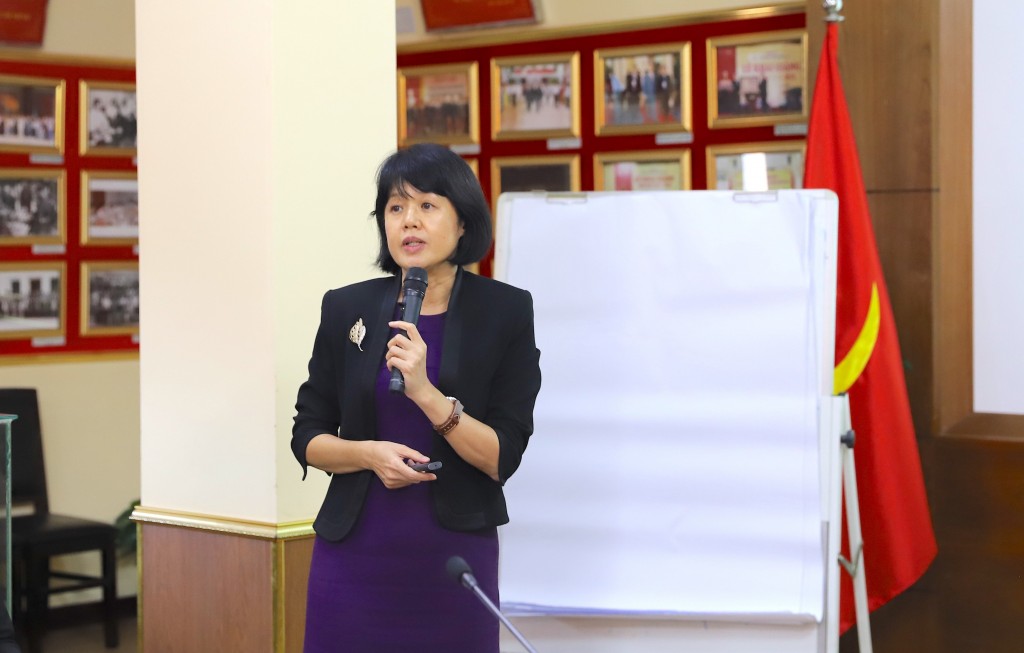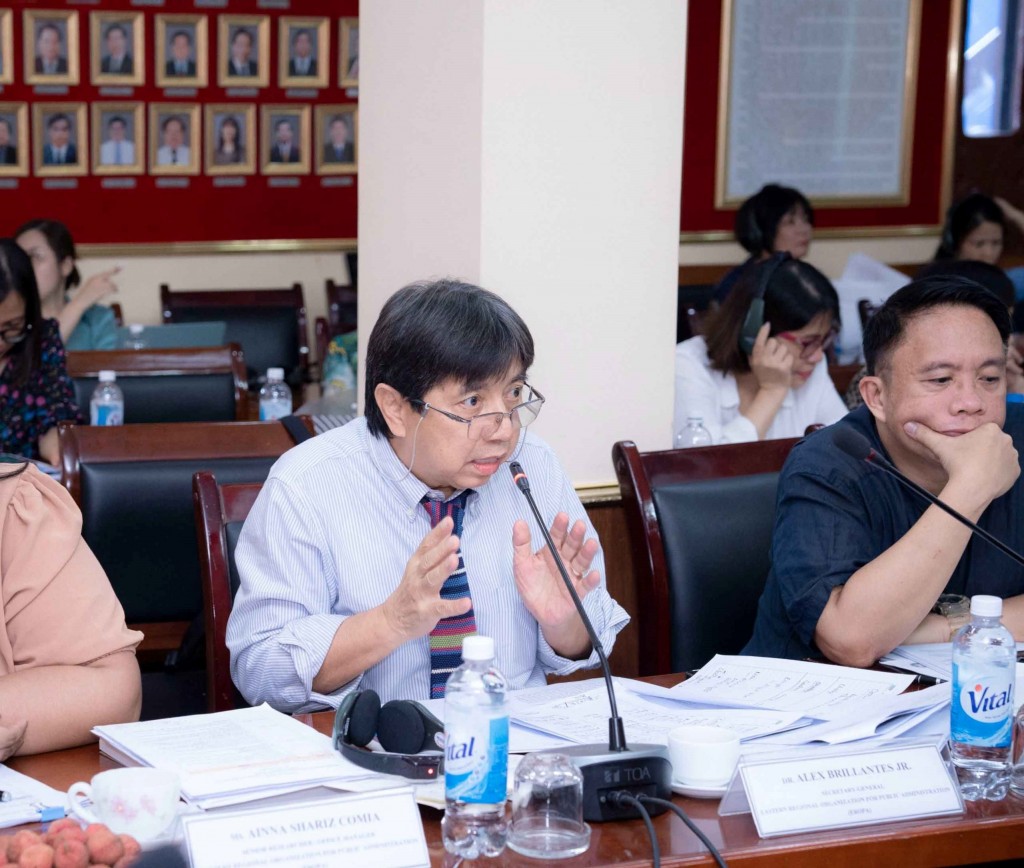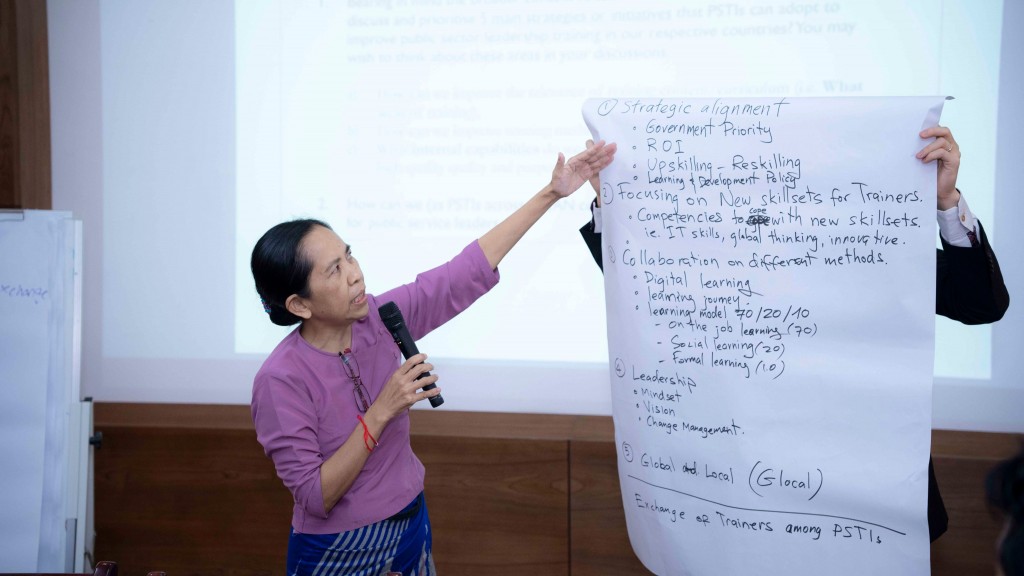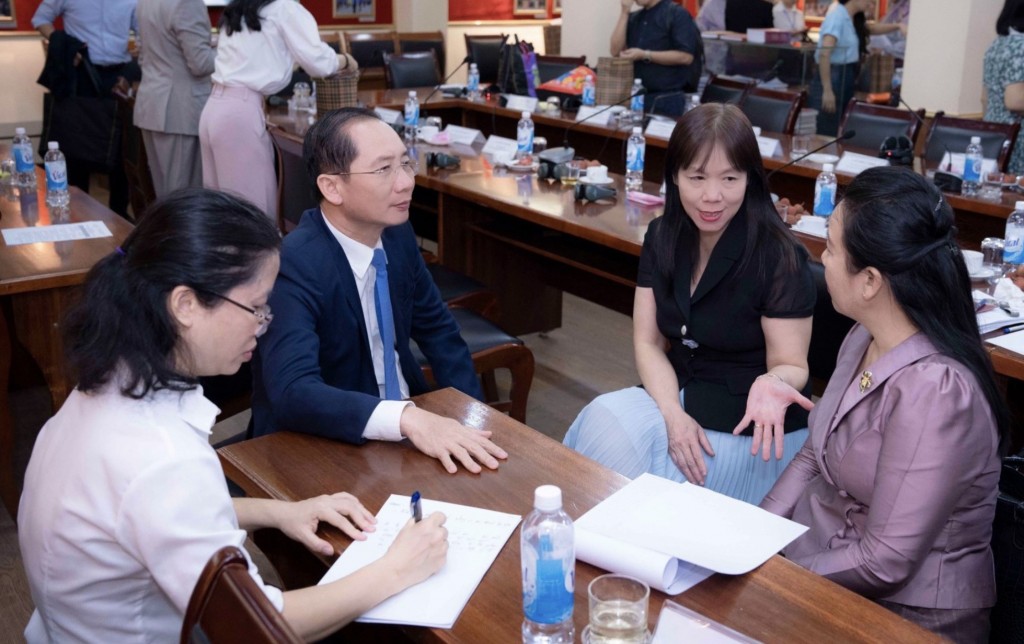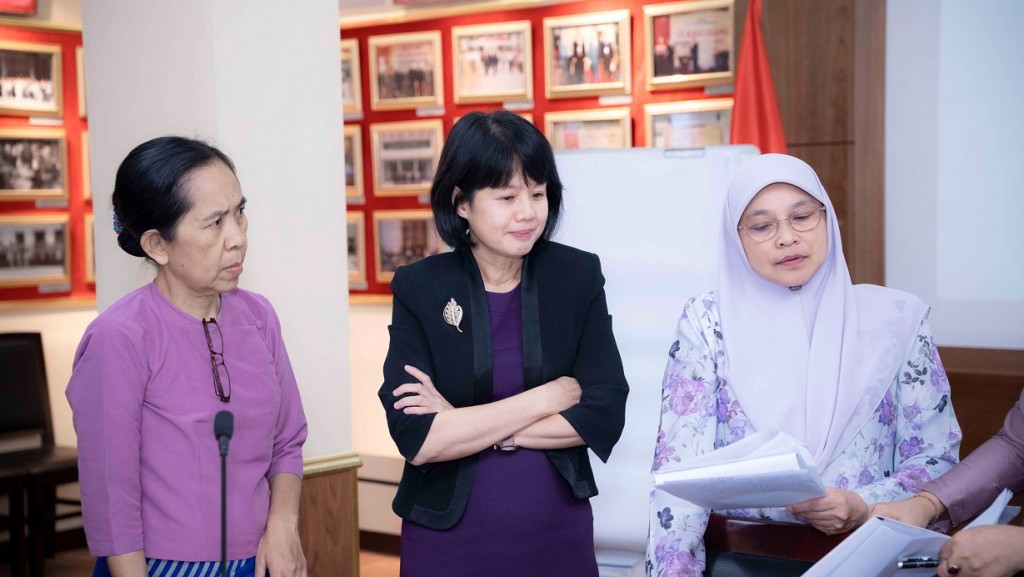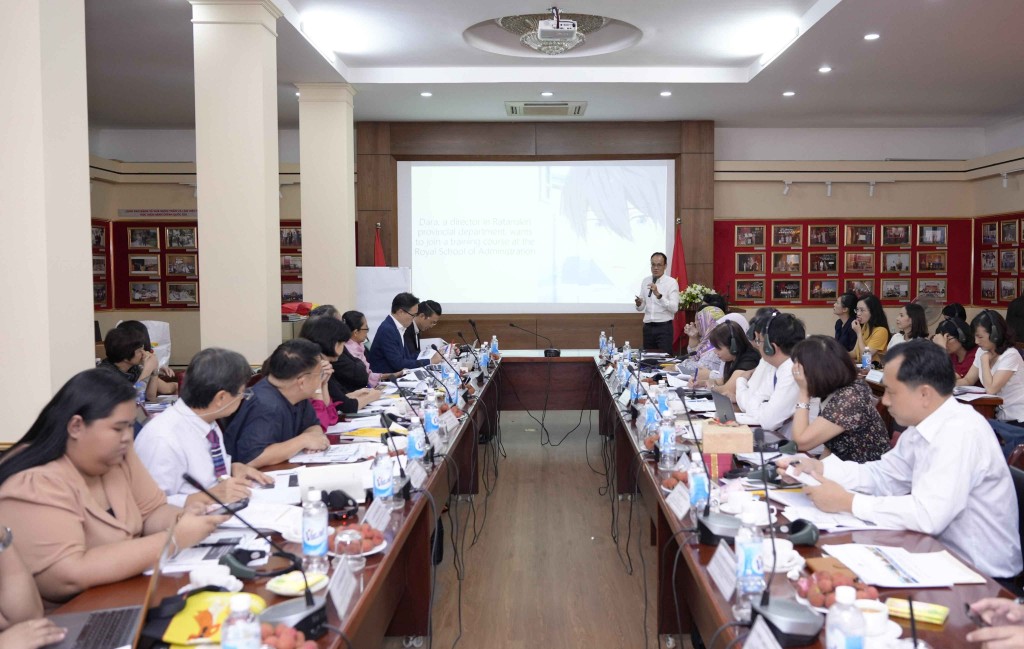As the PSTI Convenor of PSTI Network 2023 – 2024, the National Academy of Public Administration (NAPA) organized a hybrid workshop on “Enhancing the leadership capacity in the context of globalization and digitalization” at NAPA Headquarters in Hanoi on 6 July 2023. This workshop is part of the activities of the ASEAN Network of Public Service Training Institutes (PSTI). Assoc. Prof. Dr. Nguyen Ba Chien, NAPA President, chaired the workshop.
The workshop was attended by Heads of PSTIs and international organizations as well as their accompanying officers. The Heads of nine international delegations are Dr. Noor Maya Salleh, Director, Institut Perkhidmatan Awam, Prime Minister’s Office, Brunei Darussalam; Mr. Sung Vinntik, Vice President, Royal School of Administration, Cambodia; Dr. Chantha Onxayvieng, Director General, Public Administration Research and Training Institute (PARTI) under the Ministry of Home Affairs of Laos; Dr. Roslan bin Mahmood, Deputy Director (Programme and Potential Assessment), National Institute of Public Administration (INTAN), Malaysia; Dr. Khin Mar Myo, Pro-rector, Civil Service Academy (Upper Myanmar), Union Civil Service Board, Myanmar; Ms. Victoria F. Esber, Acting Assistant Commissioner, Philippine Civil Service Commission, Philippines; Ms. Ong Toon Hui, Dean & CEO, Civil Service College, Singapore; Mr. Kenneth Sim, Dean, Chandler Academy of Governance, Deputy Executive Director, Chandler Institute of Governance; Dr. Alex Brillantes Jr., Secretary-General, Eastern Regional Organization for Public Administration (EROPA).
On the side of NAPA, there were Assoc. Prof. Dr. Luong Thanh Cuong, NAPA President; representatives of NAPA departments, faculties and units, as well as experts, researchers, and trainers who participated both in-person and online from various locations.
In his opening remarks, Assoc. Prof. Dr. Nguyen Ba Chien, NAPA President, conveyed warm greetings to the international participants of the workshop. He emphasized that good governance is the determining factor for the success of countries in building modern and effective national governance in the context of globalization and digitalization, with both abundant opportunities and intertwined challenges. He highlighted the need for a workforce with comprehensive leadership capabilities that are “global” in nature and management capabilities that are “local”, rooted in traditions and tailored to the economic, political, cultural, and social contexts of each country.
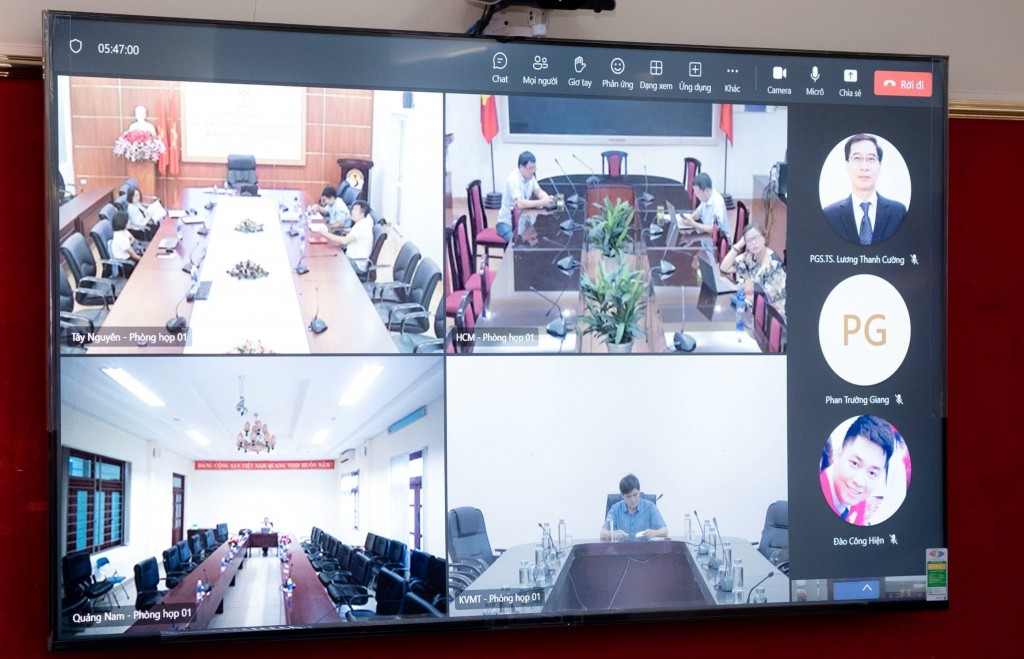
The workshop being conducted both in-person and through online broadcasting to reach participants at various locations
The workshop aims to create opportunities for members of the PSTI Network to share successful practical experiences and identify and understand the opportunities and challenges, thereby gaining a comprehensive vision. Based on that, participants can discuss how to innovate the contents, curriculum, and methods of training public leaders in the context of globalization and digitalization. The workshop also serves as a forum to exchange ideas and promote collaboration in capacity building and academic research among PSTI members, as well as between PSTIs and international organizations in the region, such as CIG and EROPA. In particular, the outcomes of the workshop will be utilized to develop plans for organizing training and development activities to enhance the leadership capacity of the public sector and the training delivery of trainers within the framework of the PSTI activities.
Mr. Kenneth Sim, Dean of CAG, delivered a presentation on “Building leadership capabilities in the public service” and reported on the outcomes regarding issues in leadership and management training in the public sector. The biggest challenge facing national government training institutes is a shortage of qualified instructional designers to develop training programs. He also shared some experiences in implementing training programs, such as attracting and engaging the participation of experts, enhancing exchange and collaboration, identifying a future focus for training programs (such as leadership ethics and digital capabilities), utilizing both traditional and modern pedagogical approaches (small group discussions, case studies, simulation-based activities), and utilizing various teaching delivery methods (face-to-face, online, virtual classrooms).
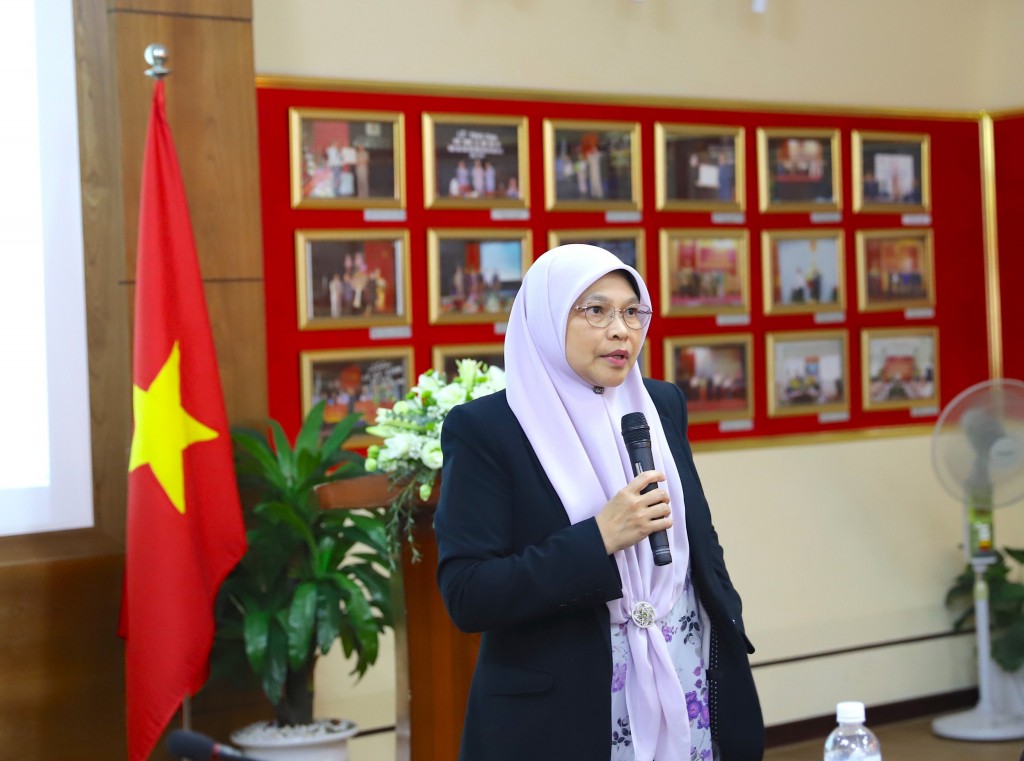
Dr. Noor Maya Salleh, Director, Institut Perkhidmatan Awam, Prime Minister’s Office, Brunei Darussalam, sharing experiences at the workshop
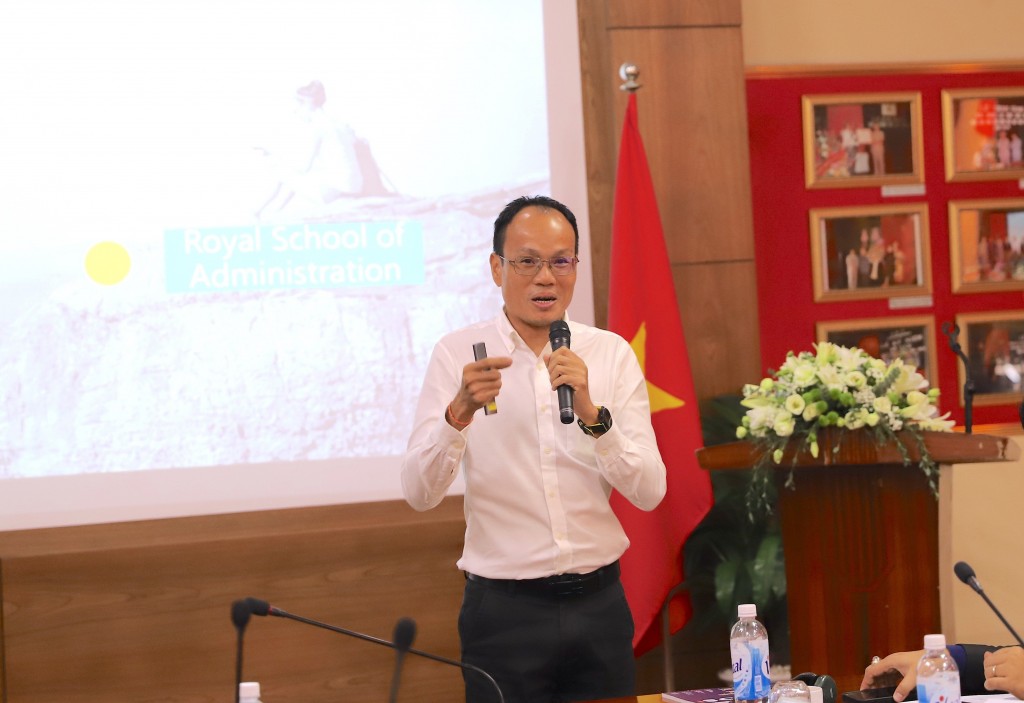
Mr. Sung Vinntik, Vice President, Royal School of Administration, Cambodia, sharing experiences at the workshop
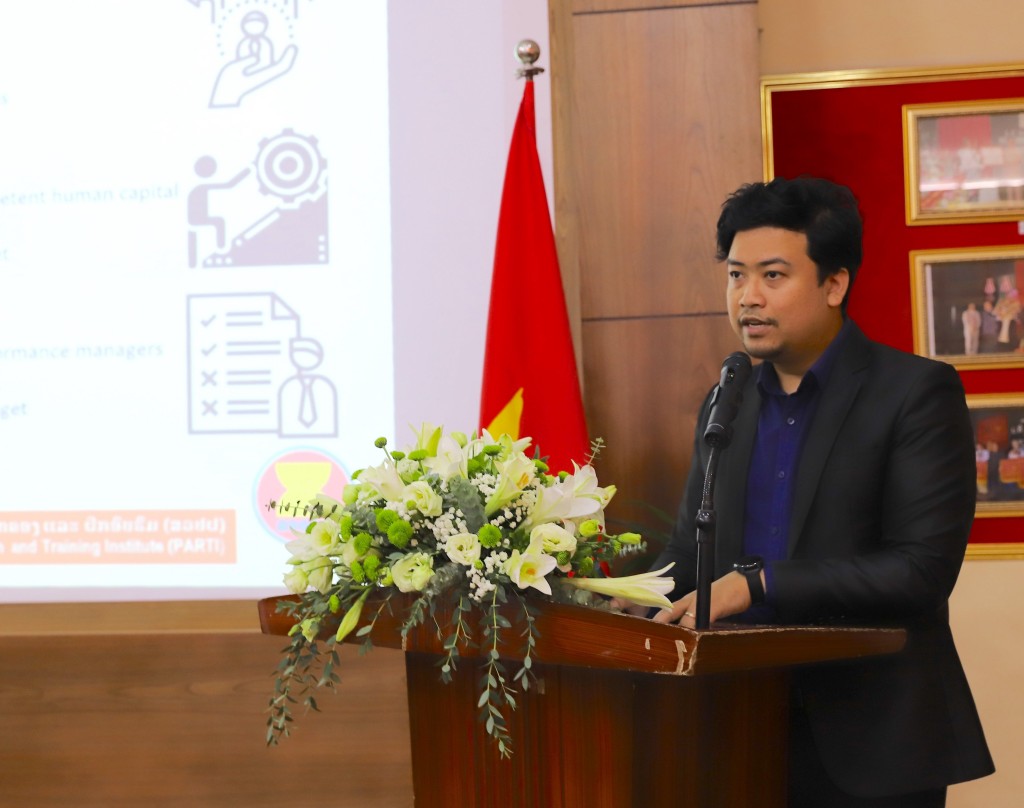
Mr. Amphon Viphongxay, Technical Officer, Public Administration Research and Training Institute (PARTI), Ministry of Home Affairs, Laos, sharing experiences at the workshop

Dr. Roslan bin Mahmood, Deputy Director (Programme and Potential Assessment), National Institute of Public Administration (INTAN), Malaysia, sharing experiences at the workshop
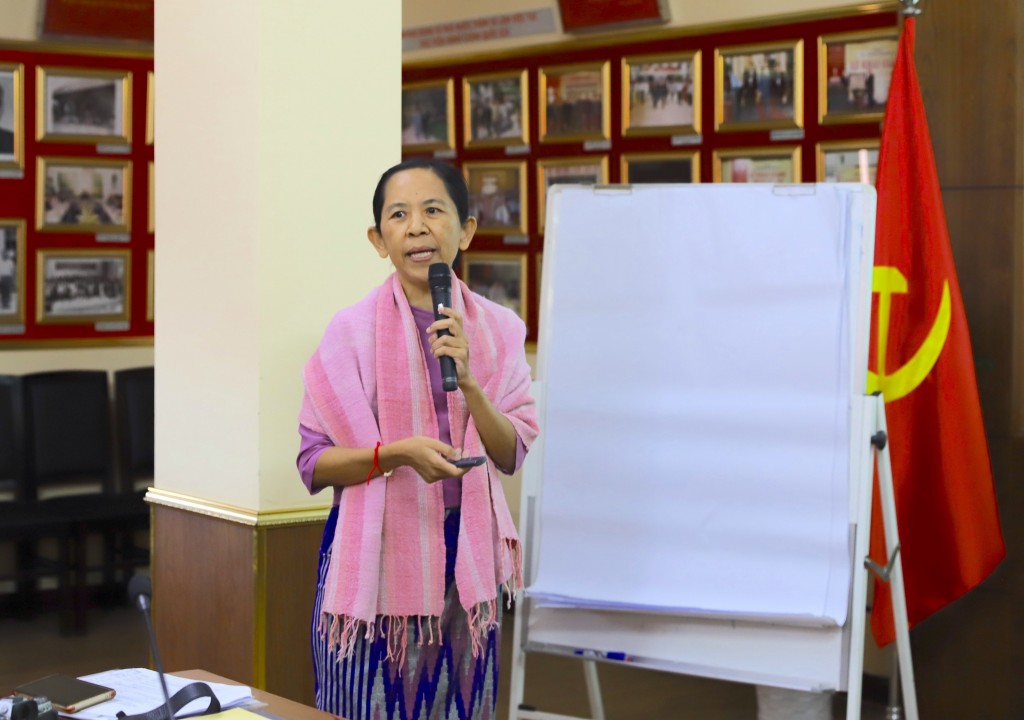
Dr. Khin Mar Myo, Pro-rector, Civil Service Academy (Upper Myanmar), Union Civil Service Board, Myanmar, sharing experiences at the workshop

Mr. Fernando M. Porio, Director IV, Civil Service Institute (CSI), Philippine Civil Service Commission, Philippines, sharing experiences at the workshop
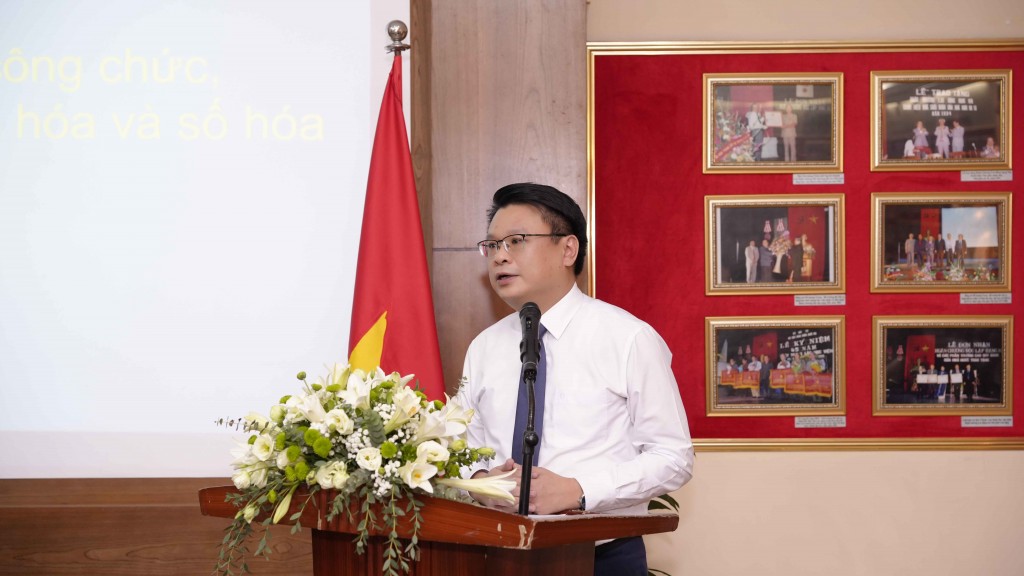
Dr. Bui Huy Tung, Director General, Department of Refresher Training Management, NAPA, sharing experiences at the workshop
At the workshop, representatives of PSTIs shared their experiences in capacity development for public leaders in the context of globalization and digitalization:
- The context of globalization and digitalization: opportunities, challenges and requirements for public leaders and managers;
- Areas of public sector leadership training in the context of globalization and digitalization to promote sustainable socio-economic development;
- Methods and innovation of public leaders training in the context of globalization and digitalization to promote sustainable socio-economic development.
After the sharing by representatives of PSTIs, Dr. Alex Brillantes, EROPA Secretary-General, reflected that in the current context of globalization and digitalization, new challenges arise, requiring an accelerated pace to diversify training content and standardize leadership and management competencies. According to him, capacity building is a continuous process that requires long-term planning and vision. He particularly emphasized the importance of updating and innovating leadership training to meet the increasing demands of future public service development. This, in turn, necessitates a change in mindset and adaptive capacity, with sufficient flexibility to keep up with the flow of the times.
In the workshop, a discussion activity was held on innovating the content and methods of leadership capacity building for public leaders in the context of globalization and digitalization in PSTI member countries. Delegates and experts discussed and prioritized strategies or initiatives that PSTIs can adopt to improve public sector leadership training in their respective countries (How PSTIs can improve the relevance of training content/curriculum; How PSTIs improve training methods/pedagogy; What internal capabilities PSTIs need to build within the PSTIs to deliver high-quality and purposeful training for public service leaders). They also discussed how PSTIs across ASEAN countries could collaborate to improve training for public service leaders.
At the closing of the workshop, NAPA President Nguyen Ba Chien expressed sincere gratitude to the heads and representatives of PSTIs, international experts from EROPA and CIG, and delegates for their interest, participation, and positive support throughout the event. He expressed the desire to continue receiving support during the term in which NAPA assumes the role of Convenor of PSTI Network as well as in future collaborative activities. He called for even greater cooperation, exchange, and active sharing among PSTI network members, as well as the collaboration of EROPA and CIG, all aiming towards the goal of strengthening and further developing the PSTI network, making tangible contributions to the sustainable development of each respective country and the ASEAN region as a whole.




